‘I have fought my way to a new kind of freedom’: people we support share their stories on stage
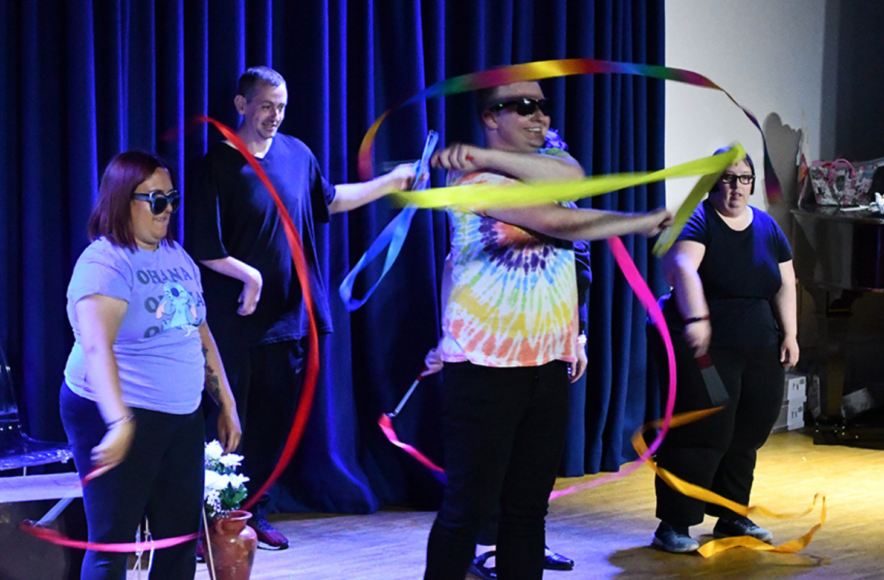
When I arrived at the theatre space in Mansfield Library, ‘Proud Mary’ was blasting over the speakers. People we support and support workers were dancing together under the colourful beams of stage lights, and their laughter burst through the music.
This one moment in time tapped into the heart of support at United Response, which includes, but also extends infinitely beyond, meeting people’s basic needs.
‘This is me’ – a story of transformation
The rehearsal was for ‘This is me’, a play that challenges preconceptions about learning disabilities, support work and what it means to truly care. While the play follows one narrative, the story is a collage of moments and reflections from the many lives of people we support in Nottingham.
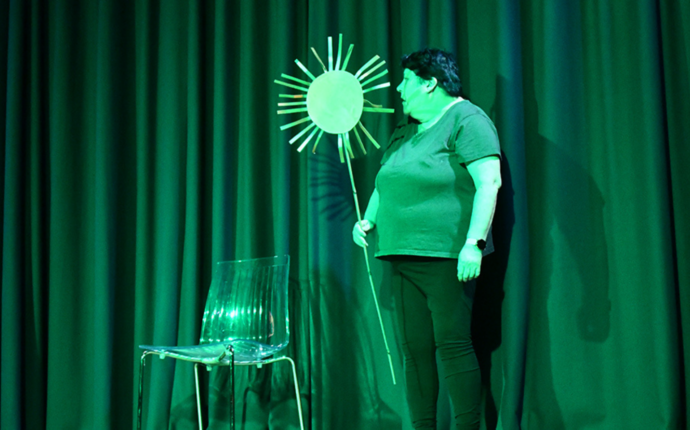
Told using words, lighting and movement, the story covers a mental health experience of a person with learning disabilities. We are taken on a journey from restriction to freedom: shown how it feels to be trapped in a set of systems and rules without any freedom or control, and what it means to break free.
The powerful script included statements like:
With no choice in where I went to live, I was restricted with my wants and needs. How would you feel with your life choices being decided for you?
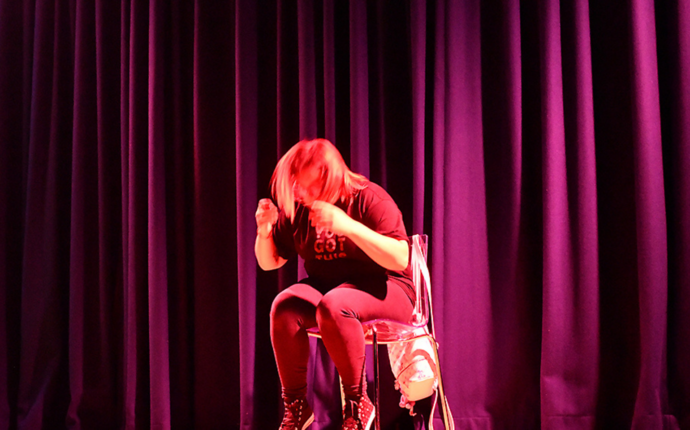
As things in the story took a more positive change, music, sunshine-shaped props, ribbons and glow sticks helped the audience to understand how it feels to find community, self-esteem and ambition after a battle with control and restriction.
Starting to recognise who I was, what was important to me and what I was happy to be a part of, felt liberating.
This is an intelligent piece of storytelling which celebrates and platforms the complex lives of the people we support. At its heart, ‘This is me’ is a story of hope.
David (pictured below), who helped produce the show, explained:
The show teaches the people who want to move out on their own that they can do it at some point.
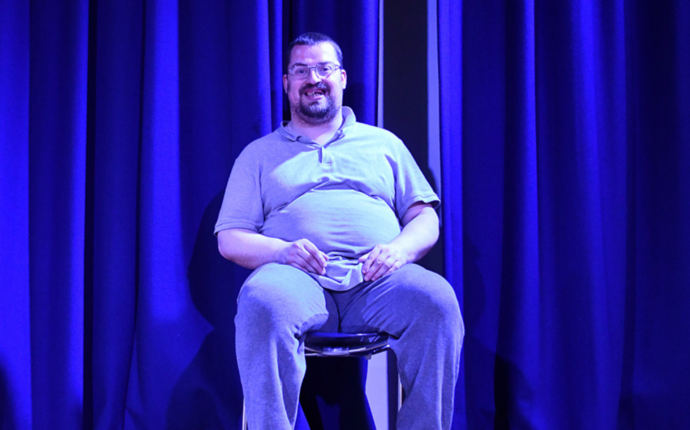
The creative process
Within theatre, devising is a famously tricky task – often much harder than directing an already existing play. So why do it? Despite the challenges of producing a brand-new script, the theatre form is also known to be non-hierarchical. In other words, it’s a perfect tool for giving people the chance, not only to tell their stories, but to own those stories.
This was very important to the Nottingham staff team. Service Manager Liz said:
We pooled ideas from everyone. We went off into groups and talked about people’s journeys and I put it all into a script.
The process was emotional, thought provoking, and very much led by the people we support.
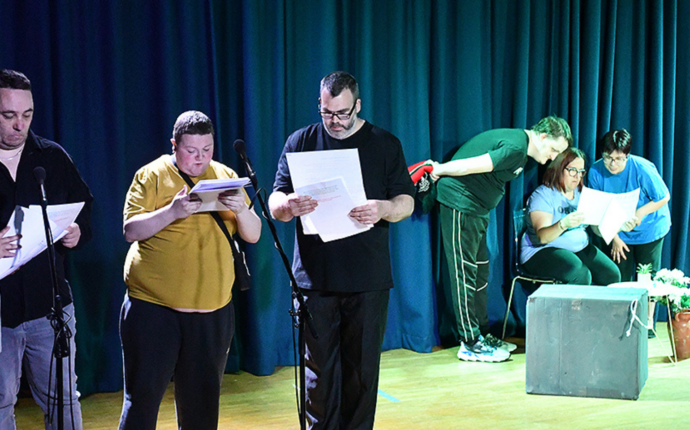
Why theatre matters
As the show came to an end, the auditorium transformed into a buzzing awards ceremony, packed with in-jokes, warmth, and celebration.
At this point audience members had gone to the reception, and the crew were able to celebrate what they had all made happen, and what they were all part of.
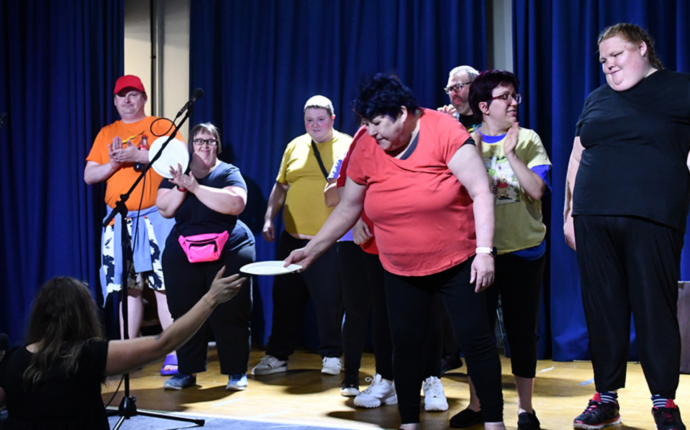
Directors Olivia, Cheryl and Richard, who by day are Area Manager, Service Manager and Support Worker, were delighted with the performance and very proud of everybody.
Olivia explained:
It’s been very special to see everyone’s confidence grow, and to watch people go from being shy and reserved to being able to perform on stage.
Could you be the support worker that changes someone’s life? Check out our latest vacancies here.
- Ali Mills is Communications and Engagement Officer at United Response